Community articles — Two-column
Seneste
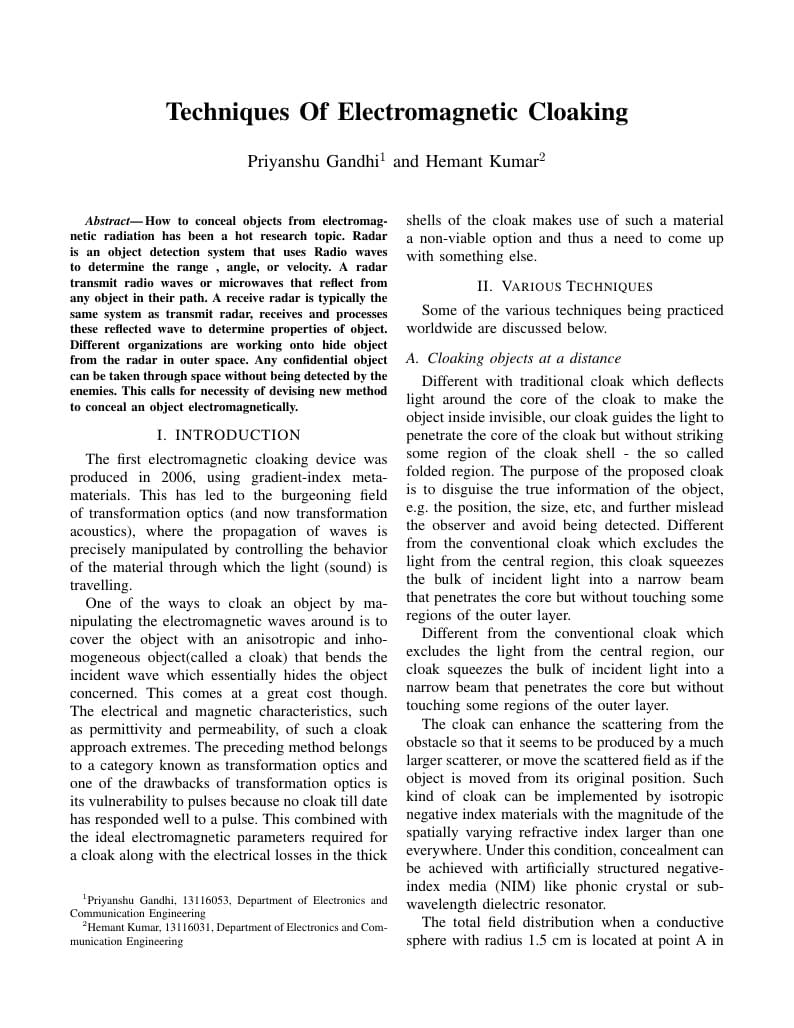
How to conceal objects from electromagnetic radiation has been a hot research topic. Radar is an object detection system that uses Radio waves to determine the range, angle, or velocity. A radar transmit radio waves or microwaves that reflect from any object in their path. A receive radar is typically the same system as transmit radar, receives and processes these reflected wave to determine properties of object. Different organizations are working onto hide object from the radar in outer space. Any confidential object can be taken through space without being detected by the enemies. This calls for necessity of devising new method to conceal an object electromagnetically.
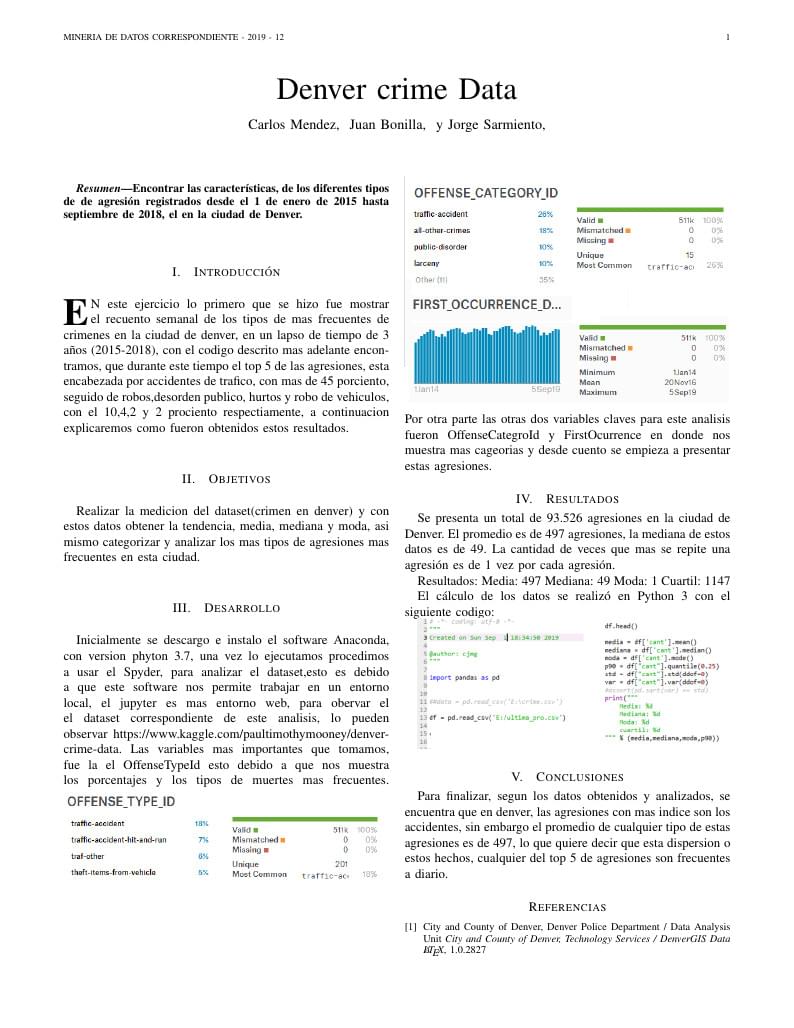
Encontrar las características, de los diferentes tipos de de agresión registrados desde el 1 de enero de 2015 hasta septiembre de 2018, el en la ciudad de Denver.
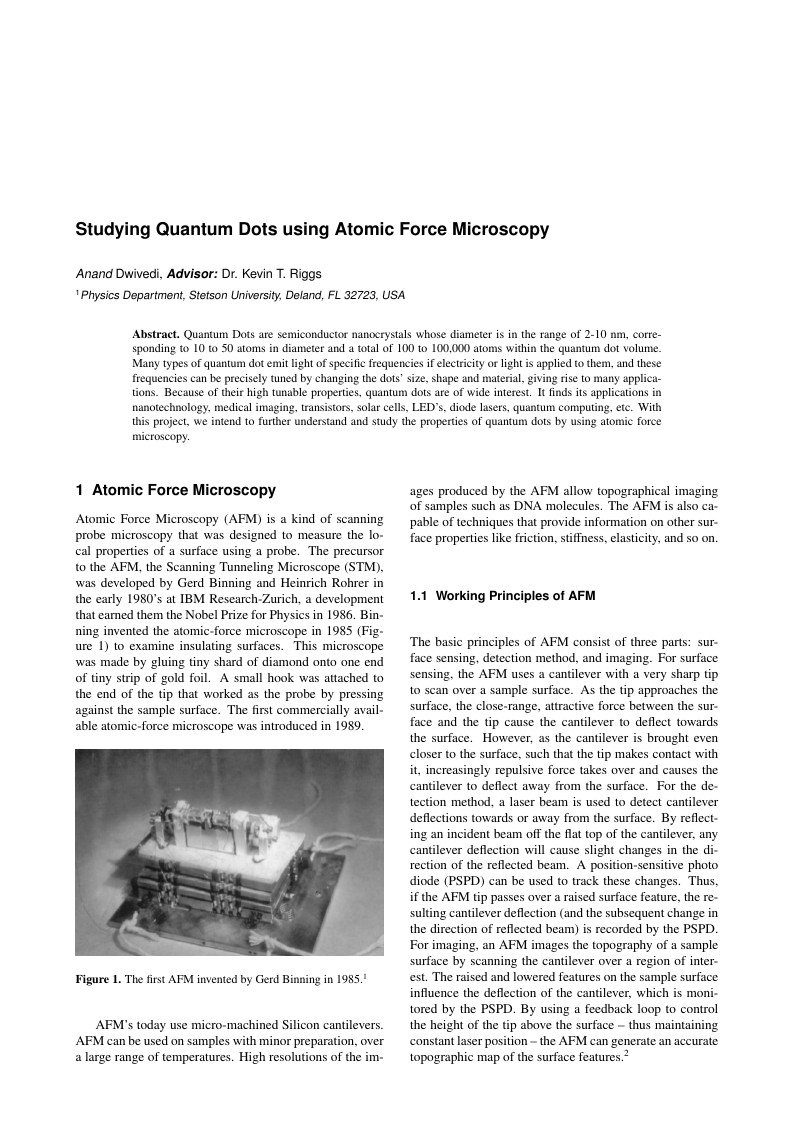
Quantum Dots are semiconductor nanocrystals whose diameter is in the range of 2-10 nm, corre- sponding to 10 to 50 atoms in diameter and a total of 100 to 100,000 atoms within the quantum dot volume. Many types of quantum dot emit light of specific frequencies if electricity or light is applied to them, and these frequencies can be precisely tuned by changing the dots’ size, shape and material, giving rise to many applica- tions. Because of their high tunable properties, quantum dots are of wide interest. It finds its applications in nanotechnology, medical imaging, transistors, solar cells, LED’s, diode lasers, quantum computing, etc. With this project, we intend to further understand and study the properties of quantum dots by using atomic force microscopy.
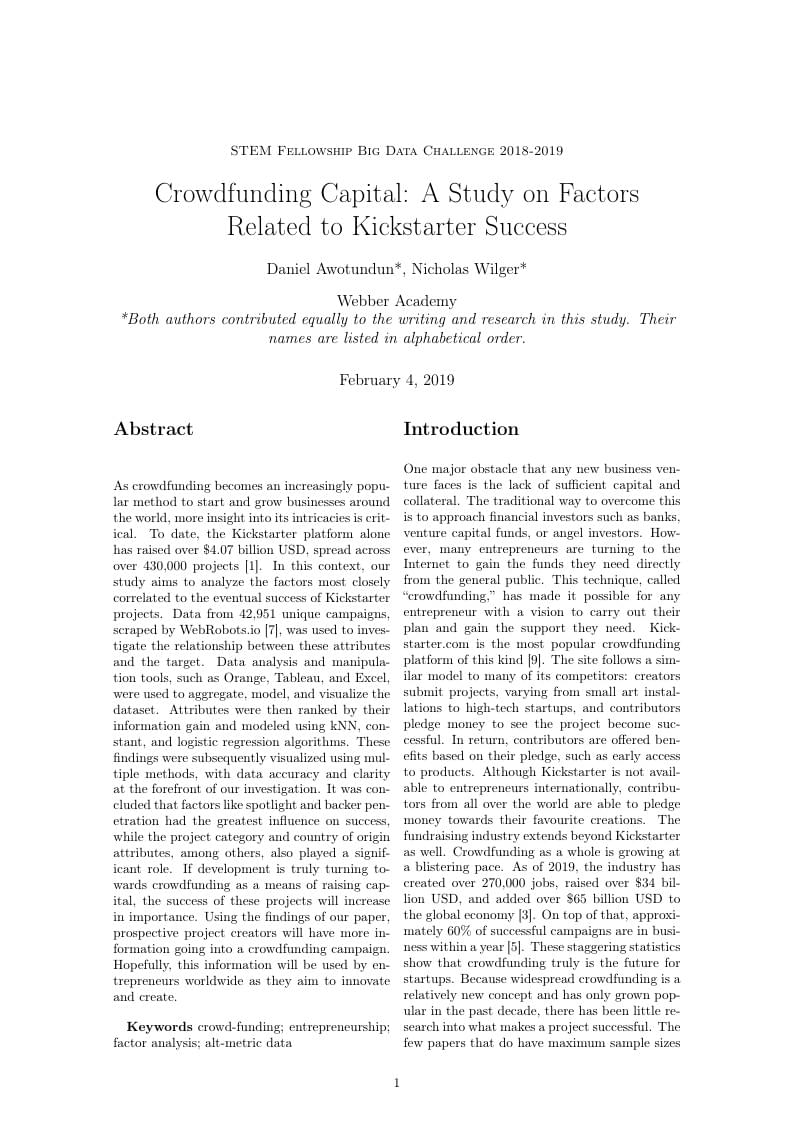
This study aims to analyze what altmetric factors affect the success of a Kickstarter campaign. This project was created by two high school students for the Big Data Challenge.
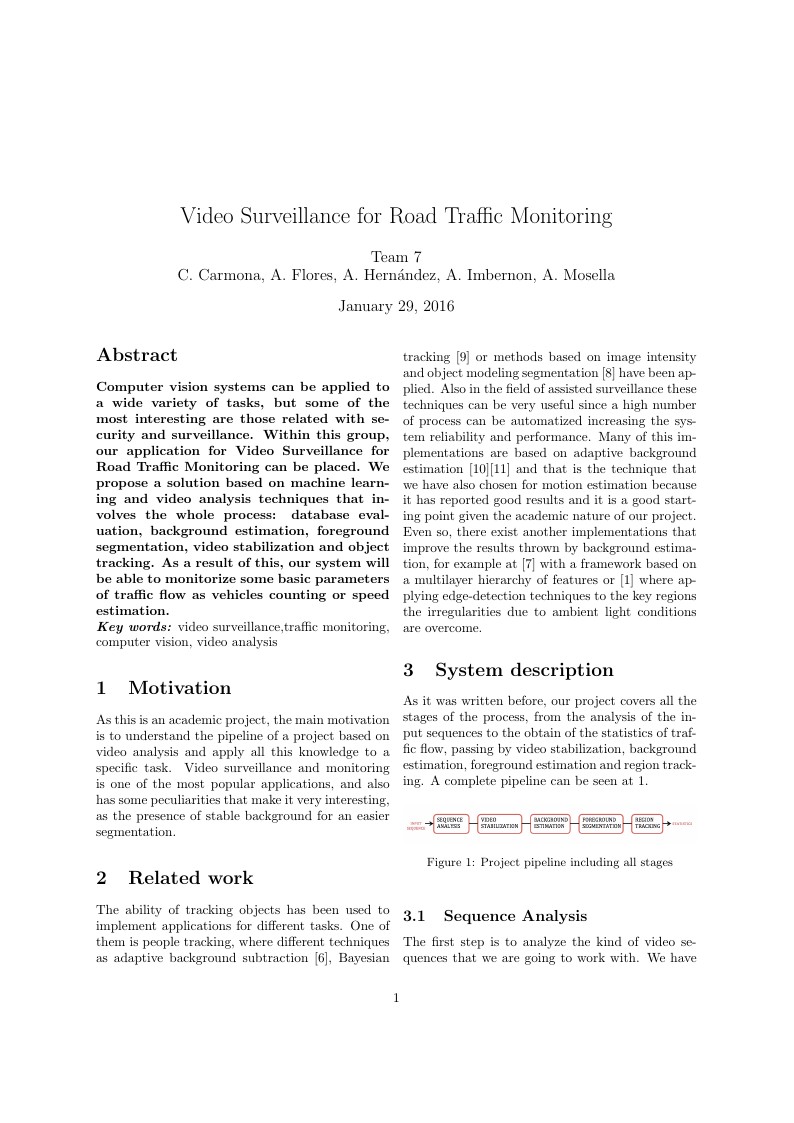
Computer vision systems can be applied to a wide variety of tasks, but some of the most interesting are those related with security and surveillance. Within this group, our application for Video Surveillance for Road Traffic Monitoring can be placed. We propose a solution based on machine learning and video analysis techniques that involves the whole process: database evaluation, background estimation, foreground segmentation, video stabilization and object tracking. As a result of this, our system will be able to monitorize some basic parameters of traffic flow as vehicles counting or speed estimation.
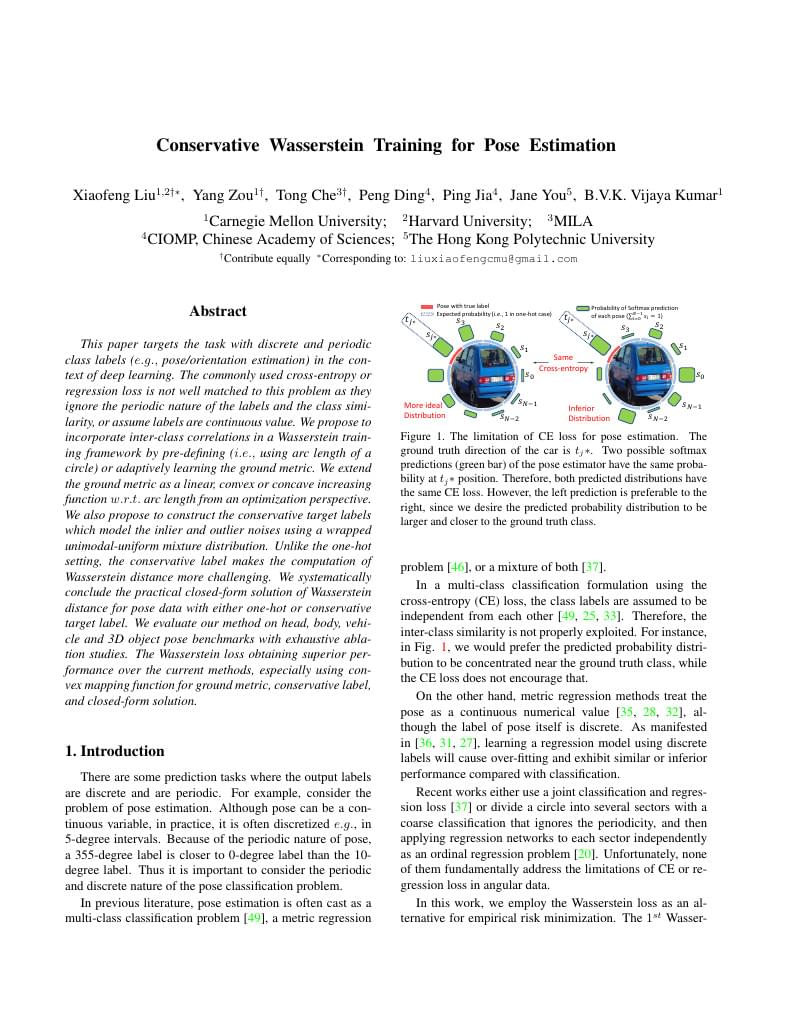
Paper presented at ICCV 2019. This paper targets the task with discrete and periodic class labels (e.g., pose/orientation estimation) in the context of deep learning. The commonly used cross-entropy or regression loss is not well matched to this problem as they ignore the periodic nature of the labels and the class similarity, or assume labels are continuous value. We propose to incorporate inter-class correlations in a Wasserstein training framework by pre-defining (i.e., using arc length of a circle) or adaptively learning the ground metric. We extend the ground metric as a linear, convex or concave increasing function w.r.t. arc length from an optimization perspective. We also propose to construct the conservative target labels which model the inlier and outlier noises using a wrapped unimodal-uniform mixture distribution. Unlike the one-hot setting, the conservative label makes the computation of Wasserstein distance more challenging. We systematically conclude the practical closed-form solution of Wasserstein distance for pose data with either one-hot or conservative target label. We evaluate our method on head, body, vehicle and 3D object pose benchmarks with exhaustive ablation studies. The Wasserstein loss obtaining superior performance over the current methods, especially using convex mapping function for ground metric, conservative label, and closed-form solution.
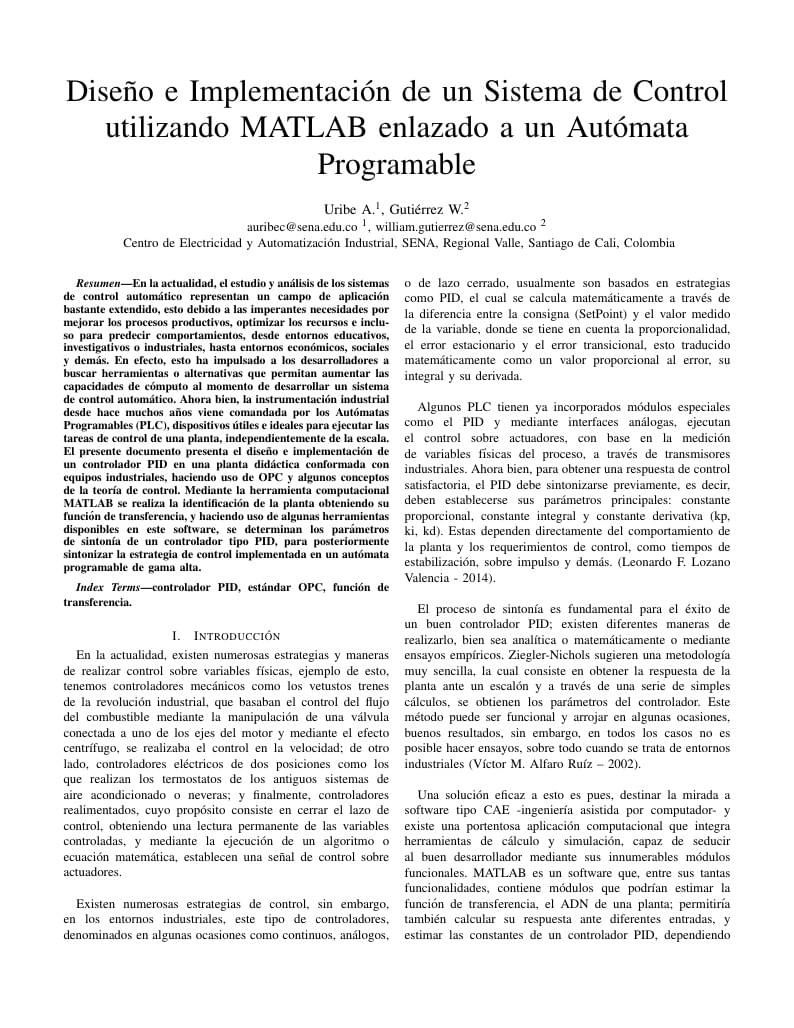
En la actualidad, el estudio y análisis de los sistemas de control automático representan un campo de aplicación bastante extendido, esto debido a las imperantes necesidades por mejorar los procesos productivos, optimizar los recursos e incluso para predecir comportamientos, desde entornos educativos, investigativos o industriales, hasta entornos económicos, sociales y demás. En efecto, esto ha impulsado a los desarrolladores a buscar herramientas o alternativas que permitan aumentar las capacidades de cómputo al momento de desarrollar un sistema de control automático. Ahora bien, la instrumentación industrial desde hace muchos años viene comandada por los Autómatas Programables (PLC), dispositivos útiles e ideales para ejecutar las tareas de control de una planta, independientemente de la escala. El presente documento presenta el diseño e implementación de un controlador PID en una planta didáctica conformada con equipos industriales, haciendo uso de OPC y algunos conceptos de la teoría de control. Mediante la herramienta computacional MATLAB se realiza la identificación de la planta obteniendo su función de transferencia, y haciendo uso de algunas herramientas disponibles en este software, se determinan los parámetros de sintonía de un controlador tipo PID, para posteriormente sintonizar la estrategia de control implementada en un autómata programable de gama alta.
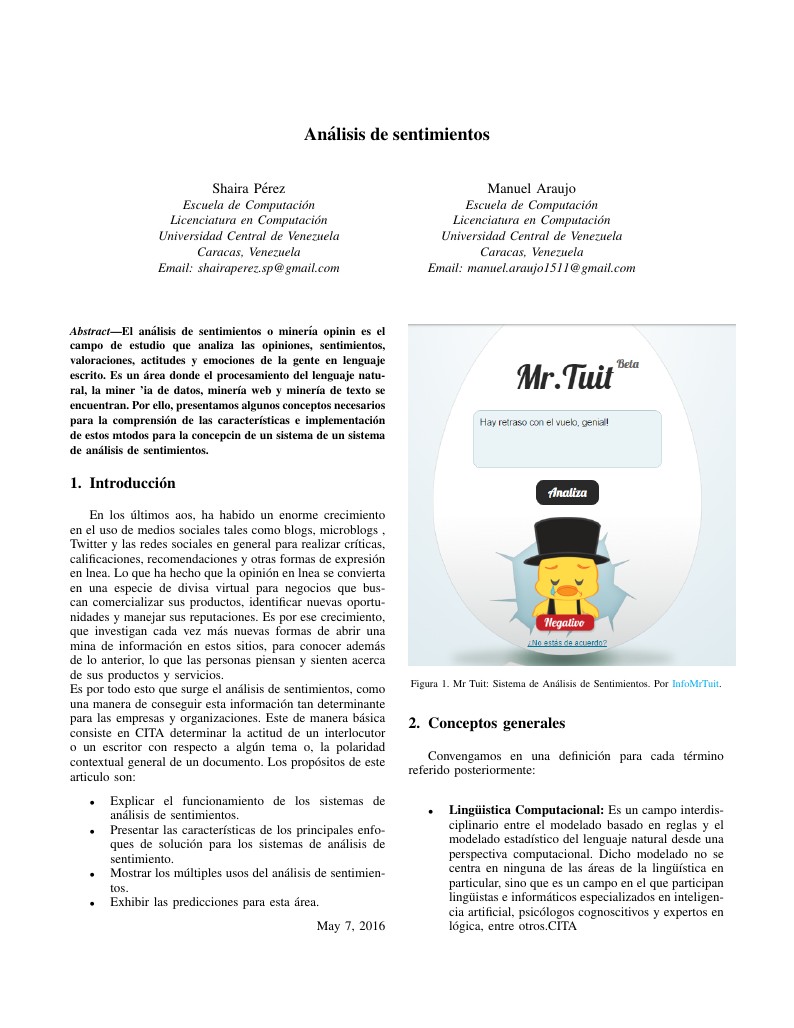
El análisis de sentimientos o minería opinión es el campo de estudio que analiza las opiniones, sentimientos, valoraciones, actitudes y emociones de la gente en lenguaje escrito. Es un área donde el procesamiento del lenguaje natural, la minería de datos, minería web y minería de texto se encuentran. Por ello, presentamos algunos conceptos necesarios para la comprensión de las características e implementación de estos métodos para la concepción de un sistema de un sistema de análisis de sentimientos.
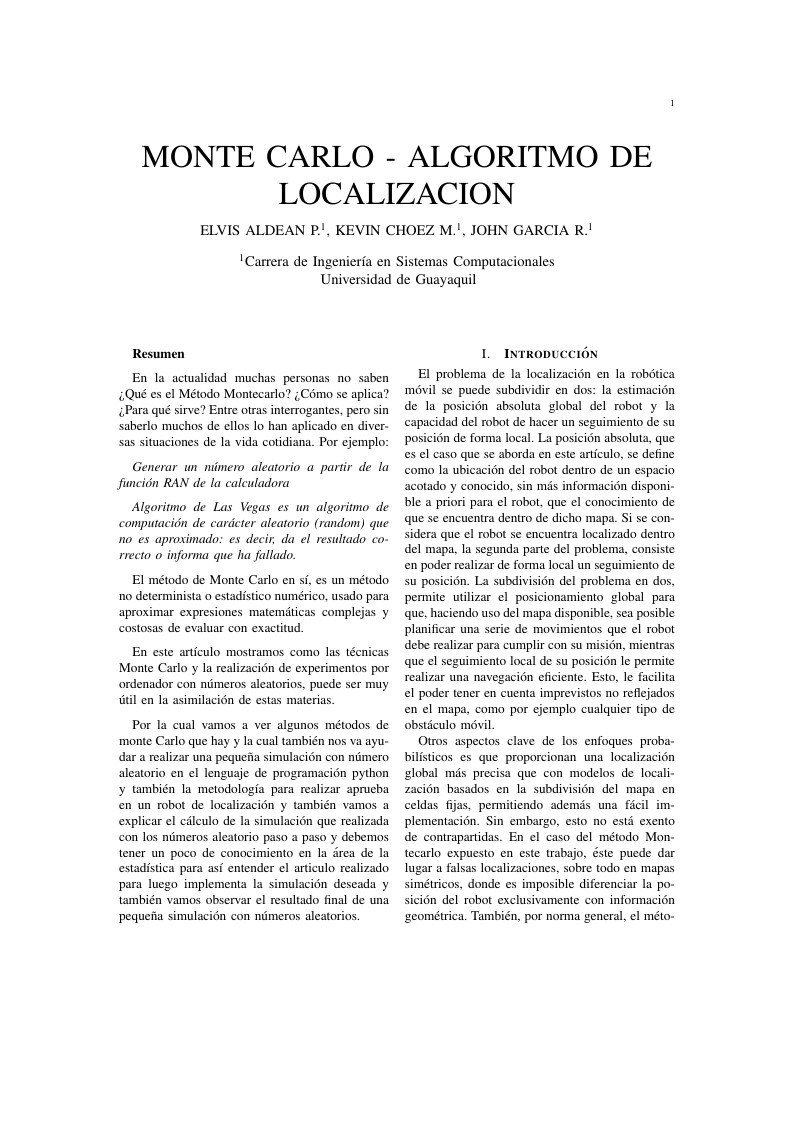
Los métodos de Montecarlo abarcan una colección de técnicas que permiten obtener soluciones de problemas matemáticos o físicos por medio de pruebas aleatorias repetidas.
\begin
Discover why over 25 million people worldwide trust Overleaf with their work.